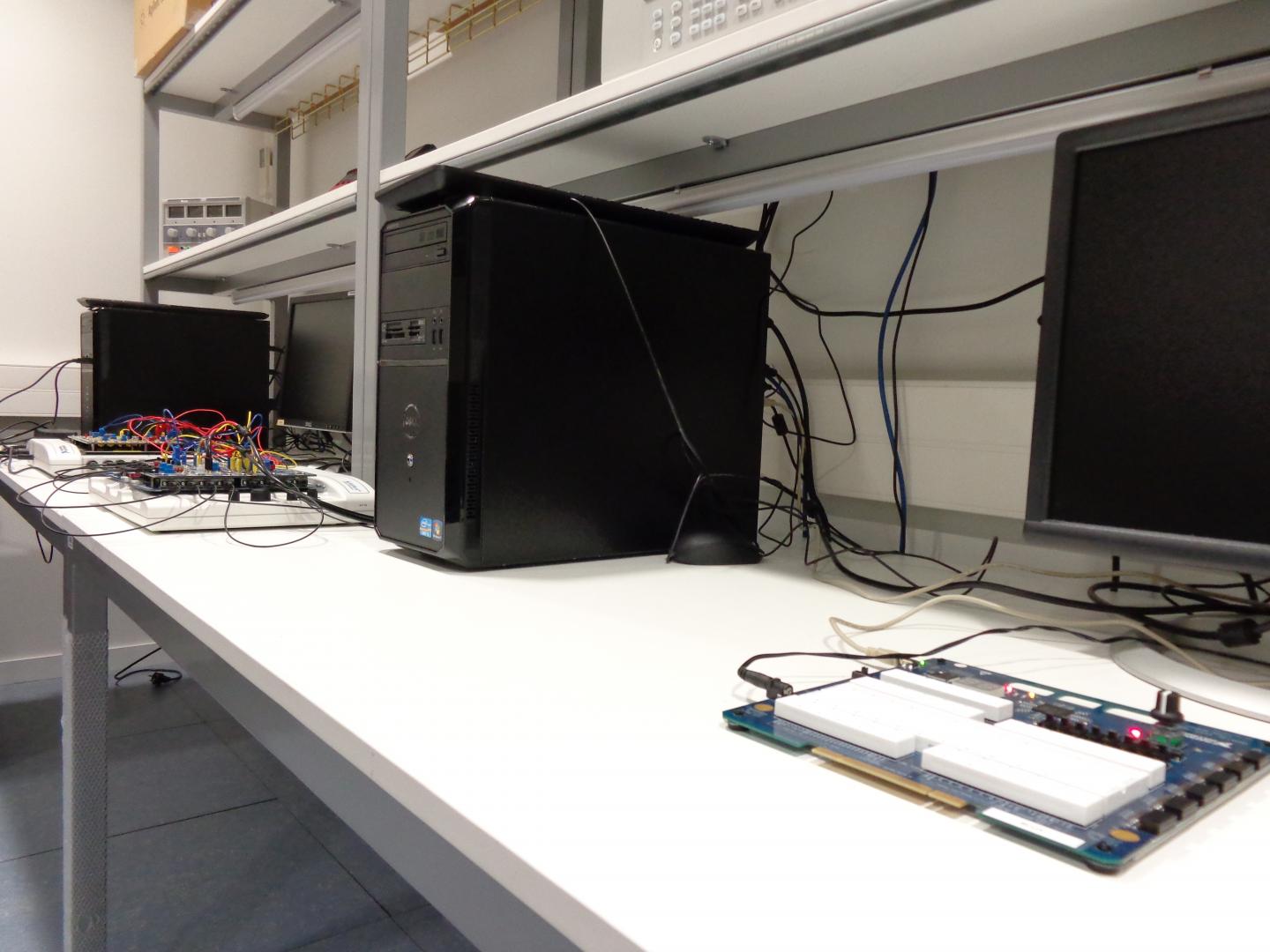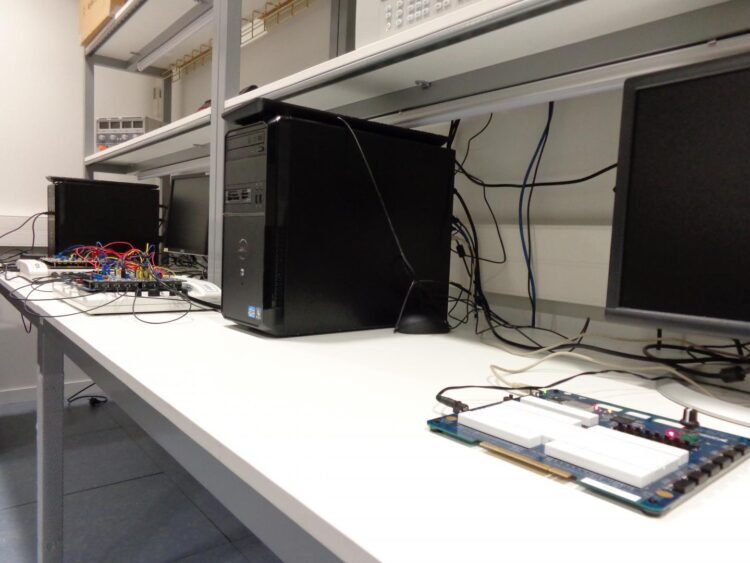Hundreds of students have used this technological solution in the UOC’s Faculty of Computer Science, Multimedia and Telecommunications

Credit: UOC
Laboratories are an inherent part of technology qualifications, as practical experiments are essential for students to acquire the competencies and skills that they will need during their future professional development. Providing this learning in a virtual format is one of the challenges posed by the current COVID-19 pandemic–a challenge that distance universities have been addressing for years. RLAB-UOC is a remote laboratory designed and developed by the Universitat Oberta de Catalunya (UOC) that enables students in the Faculty of Computer Science, Multimedia and Telecommunications to conduct practical experiments with real electronic and communications equipment anywhere, at any time. A new article published in the scientific journal Electronics has described the characteristics of the laboratory, and analysed the students’ satisfaction using a type of experiment that has taken place over the past six semesters.
“The main results show that the students’ opinions are very positive, and that it is feasible to do remote experimentation with highly complex and expensive equipment and devices, like those in electronics and communications laboratories, in a 100% online environment, integrating the theory and practical classroom in the same environment. This improves the learning experience and the students acquire the practical and professional skills they need,” pointed out Carlos Monzo, a researcher in the Faculty of Computer Science, Multimedia and Telecommunications at the UOC, and the leading author of the study. Other researchers and members of faculty also took part in the research: Germán Cobo, David García, José Antonio Morán and Eugènia Santamaria.
Controlling an electronic circuit remotely
The case study of the RLAB-UOC, which has been used by hundreds of students since its inception in 2012, was carried out for Digital Electronics, an advanced course on the Bachelor’s Degree in Telecommunications Technologies and Services Engineering (GETiST). In specific terms, it is based on an experiment with a circuit controlled by an FPGA, a programmable electronic device physically located at the UOC. Students can connect from anywhere with an internet connection, using a control program to access a real FPGA board and work remotely with the circuit, while viewing the results of their work via a webcam.
The students subsequently answered a questionnaire to rate the perceived quality and usefulness of the remote laboratory and their opinion of the use of real instruments compared to the simulations that are also used in other experiments during the course. The results of the survey show that students rate the laboratory and working with real tools “very positively”. They also think that it would be useful to extend the use of this laboratory to other courses.
Creating this feeling of being immersed in a real task was one of the most important challenges in the development of this technology. “The study shows a specific example which presents the structure of a subject where theory and practice exist side by side, and the students rate it very positively. It was also very important for us to prevent the feeling from being similar to working with a simulation, which we achieved with the design of the laboratory and the experiments carried out,” stressed the researcher.
A patented technology
The development of this remote laboratory has been accompanied by a patent to protect a technology for carrying out a type of experiment primarily related to the design and assembly of analogue electronics circuits in a fully online environment. “Its main characteristics are that it enables elements with two and three poles (resistors, capacitors, coils, transistors, etc.) to be connected automatically and remotely, which gives students the flexibility to perform the assemblies they want virtually. The invention also allows the possible experiments to be scaled, so that the system can be expanded,” said the researcher.
The types of experiments that have been performed have evolved over time and they have been changed, updated or created to meet the students’ academic needs. “The aim is to be able to offer the most advanced qualifications with experimental needs, taking into account the completely remote nature of our studies,” pointed out the researcher.
Home laboratories
The UOC also offers other alternatives in order to address this need to carry out practical experiments: virtual simulations and home labs. “When physical access to the devices is required, the student is sent equipment like Lab@Home. This is another UOC invention, in which the student can manipulate electronic devices and components in situ, and it has also been highly rated by students, as we showed in another recent article,” concluded Carlos Monzo.
###
This research by the UOC promotes Sustainable Development Goal (SDG) 4 (Quality Education).
UOC R&I
The UOC’s research and innovation (R&I) is helping overcome pressing challenges faced by global societies in the 21st century, by studying interactions between technology and human & social sciences with a specific focus on the network society, e-learning and e-health. Over 500 researchers and 51 research groups work among the University’s seven faculties and two research centres: the Internet Interdisciplinary Institute (IN3) and the eHealth Center (eHC).
The United Nations’ 2030 Agenda for Sustainable Development and open knowledge serve as strategic pillars for the UOC’s teaching, research and innovation. More information: research.uoc.edu. #UOC25years
Media Contact
Ruben Permuy
[email protected]
Original Source
https:/
Related Journal Article
http://dx.





